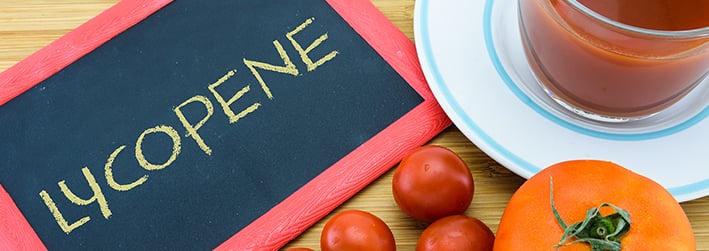Why Tomato will Be Your Skin's New Best Friend
With daily exposure to environmental stresses, such as pollution and light, particularly to UV, all skin types could benefit from extra protection.
Research shows that Lycopene, found mostly in Tomatoes, can increase the skin’s natural ability to fight oxidative stress. When applied topically, Lycopene can also absorb UV radiation, reduce inflammation, and enable repair of DNA damage.*
On average, most people don’t think to apply sunscreen daily to exposed skin (arms, legs, décolleté, even their face) to protect from UV damage. Protection is necessary even when the sun is behind clouds!
Lycopene, a carotenoid antioxidant, has been shown to prevent or repair damage to DNA that may potentially lead to cancer development. Lycopene also stimulates production of antioxidant enzymes in the skin, inhibits signals that promote tumor progression and promotes programmed death of cancerous cells.**
Lycopene prevents sunburn and long term sun damage while calming and hydrating the skin pre- and post-sun exposure. It protects against UV radiation while revitalizing and regenerating skin cells.
With its many skin benefits, Lycopene helps to maintain skin density and firmness, aids in the synthesis of pro-collagen, and protects hyaluronic acid against decomposition.

Due to their high Lycopene content, tomatoes have been tested for their ability to increase the protection of the skin from environmental damage. The ilike organic skin care tomato based products increase the protection of the skin naturally. Use them with or without sunscreen.
While this doesn't mean that one should stop using sun block, it is good to know that simply by applying the ilike organic skin care Tomato Face & Body Moisturizer for Exposed Skin you can enhance protection from daily sun and environmental damage.
- * Nichols, J.A. and S.K. Katiyar, Skin photoprotection by natural polyphenols: anti-inflammatory, antioxidant and DNA repair mechanisms. Arch Dermatol Res, 2010.
- ** van Breemen, R.B. and N. Pajkovic, Multitargeted therapy of cancer by lycopene. Cancer Lett, 2008.
